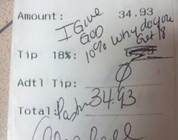Embroidering(刺绣)
When I was a little boy living in New York, my mother used to embroider a great deal. I would sit at her knee and look up from the
36 and ask what she was doing. She
37 me that she was embroidering. I told her that it looked like a mess from where I was. As from the underside I watched her work within the
38 of the little round hoop(铁环)that she held in her hand, I complained to her that it sure looked
39 from where I sat.
She would smile at me, look down and
40 say, "My son, you go about your
41 for a while, and when I am finished with my embroidering, I will put you on my
42 and let you see it from my side."
I would wonder why she was using some dark threads along with the
43 ones and why they seemed so jumbled(混乱的)from my
44 . A few minutes would pass and then I would hear Mother's voice say, " Son, come and sit on my knee." This I did only to be surprised and
45 to see a beautiful flower or a sunset. I could not
46 it, because from underneath it looked so messy.
Then mother would
47 to me, "My son, from underneath it did look messy and jumbled, but you did not realize that there was a
48 plan on the top. It was a
49 . I was only following it. Now look at it from my side
50 you will see what I was doing."
Many
51 through the years, I have
52 up to my Heavenly Father and said, “ Father, what are You doing? ” He
53 , “ I am embroidering your
54 . ”I say, " But it looks like a mess to me. It seems so jumbled. The threads seem so dark. Why can't they all be bright ? " The Father seems to tell me, " My child, you go about your business of doing My business, and one day I will bring you to
55 and put you on my knee and you will see the plan from My side. "
| 小题1: | | A.floor | B.corner | C.ceiling | D.step |
|
| 小题2: | | A.demanded | B.blamed | C.persuaded | D.informed |
|
| 小题3: | | A.decorate | B.boundaries | C.picture | D.surface |
|
| 小题4: | | A.messy | B.dirty | C.shabby | D.tight |
|
| 小题5: | | A.smartly | B.cautiously | C.gently | D.precisely |
|
| 小题6: | | A.complaining | B.playing | C.embroidering | D.imagining |
|
| 小题7: | | A.back | B.chair | C.knee | D.table |
|
| 小题8: | | A.white | B.black | C.bright | D.shining |
|
| 小题9: | | A.eyes | B.opinion | C.heart | D.view |
|
| 小题10: | | A.hopeful | B.thrilled | C.expecting | D.enthusiastic |
|
| 小题11: | | A.believe | B.consider | C.see | D.touch |
|
| 小题12: | | A.talk | B.mention | C.say | D.whisper |
|
| 小题13: | | A.pre-drawn | B.previewed | C.preserved | D.produced |
|
| 小题14: | | A.direction | B.line | C.diagram | D.design |
|
| 小题16: | | A.times | B.days | C.seasons | D.chances |
|
| 小题17: | | A.climbed | B.jumped | C.shouted | D.looked |
|
| 小题18: | | A.required | B.answered | C.instructed | D.concluded |
|
| 小题19: | | A.decision | B.fortune | C.life | D.business |
|
| 小题20: | | A.home | B.mother | C.America | D.Heaven |
|



 阅读快车系列答案
阅读快车系列答案